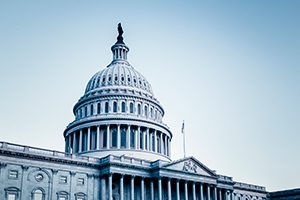NLRB Issues Joint Employer Final Rule
 On October 26, 2023, the National Labor Relations Board (NLRB) released its final rule amending the standard for determining joint employer status under the National Labor Relations Act (NLRA). The rule replaces the board’s 2020 final rule on the same issue and greatly expands joint employer status under the NLRA.
On October 26, 2023, the National Labor Relations Board (NLRB) released its final rule amending the standard for determining joint employer status under the National Labor Relations Act (NLRA). The rule replaces the board’s 2020 final rule on the same issue and greatly expands joint employer status under the NLRA.
The final rule establishes joint employer status of two or more employers if they “share or co-determine those matters governing employees’ essential terms and conditions of employment,” such as wages, benefits and other compensation; work and scheduling; hiring and discharge; discipline; workplace health and safety; supervision; and assignment and work rules. Today’s final rule finds that either indirect control or reserved control may stand alone as sufficient for finding that a joint employer relationship exists. The final rule specifically states that an entity may be considered a joint employer if it possesses the authority to control one or more essential terms and conditions of employment, regardless of whether that authority is exercised, or if it exercises the power to indirectly control one or more terms and conditions of employment, regardless of whether that power is exercised directly. This is a departure from the 2020 rule, which found that an entity must exercise substantial direct and immediate control over essential terms and conditions of employment to be considered a joint employer.
Joint employment has recently been a focal point for higher ed institutions as disputes around the worker classification of student-athletes continue. Last year, an NLRB regional office announced it would be pursuing a complaint by a student-athlete advocacy group that filed an unfair labor practice charge against that the University of Southern California, the Pac-12 Conference, and the NCAA, alleging that the three entities are joint employers who violated the NLRA by “repeatedly misclassifying employees as ‘student-athlete’ non-employees.” The case is set to be heard by an administrative law judge in November, but a final decision could take years to come to fruition.
This final rule could have significant implications for private institutions, as they fall under the NLRB’s jurisdiction. Public institutions are not impacted by this rulemaking, as the NLRB does not have jurisdiction over public entities.
CUPA-HR is assessing the final rule and will provide members with more information as it becomes available.


